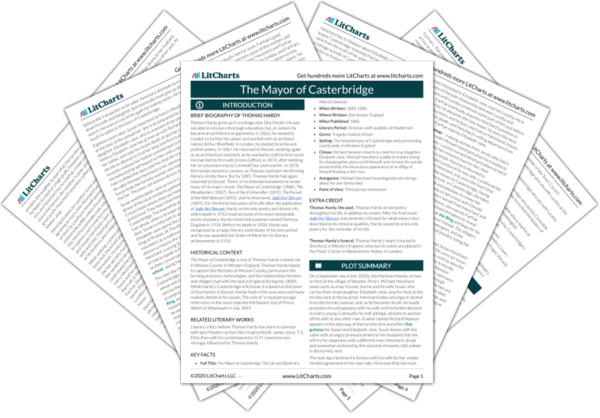An ancient Roman construction outside the town of Casterbridge, the Ring is an amphitheater structure once used for violence and entertainment. In the context of the novel, the Ring is primarily used for secretive meetings, as the place hides the dealings of characters very nicely. Michael Henchard meets two different women in the Ring, and despite the different natures and times of these meetings, he observes a striking similarity between them. First, he is reunited with his wife, Susan, at the Ring, and he feels great sympathy for her obvious sorrow and reduced circumstances. Second, Henchard meets Lucetta at the Ring, at her request, after she over-hears him reading some of her love letters to Henchard aloud to her husband, Farfrae. Lucetta pleads with Henchard to have pity on her, and to not reveal their past relationship. The Ring symbolizes the importance of secrets and secrecy in this novel, as well as a history of violence and wrongdoing, both in the Roman amphitheater and in Henchard’s life. Numerous plot events depend upon secrets withheld or exposed: Henchard’s cruel selling of his wife, the true nature of Elizabeth-Jane’s parentage, and Lucetta and Henchard’s relationship. The Ring is a venue for, and a physical manifestation of, the secrets that are already held in many hearts in Casterbridge. In addition to functioning as a symbol of secrecy, the Ring symbolizes Henchard’s sympathy and empathy. Henchard, while often proud, jealous, and cruel, takes pity on both the women that he meets at the Ring. Within the space of the Ring, he is able to see the suffering of others, which he has caused. The Ring symbolizes Henchard’s rare, but powerful, ability to empathize and change his mind.
